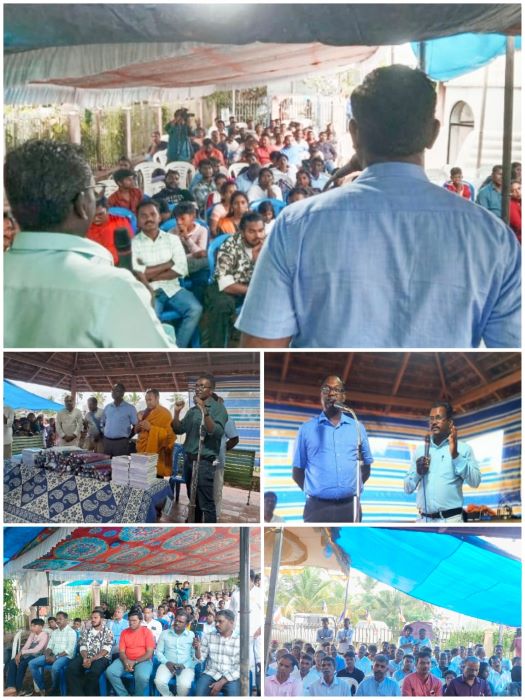Buddha Purnima Festival in Karumadikuttan, Kerala
May 23rd, 2024
(SAMAJ WEEKLY)- On May 23, Buddha Purnima was celebrated in Kerala particularly among the Buddhists. More than 300 Buddhists from different Buddhist organizations and districts participated in this event organized by the Kerala Buddhist Council. The festival celebration took place in the ancient Buddhist site of Karumadikuttan where a broken meditative Buddha statue is preserved by the Kerala Archaeology Department which belongs to the 11th century.
Buddha Purnima, also known as Vesak, holds great significance for Buddhists around the world as it commemorates the birth, enlightenment, and passing away (Mahaparinibbana) of the Buddha. The festival brings together the Buddhist community, fostering a sense of unity and shared purpose. The festival is celebrated with great enthusiasm which often includes participating in rituals and ceremonies, meditation, listening to the Dhamma talk, offerings, donating, and communal meals.
The United Nations recognizes Vesak as an international day of observance, reflecting the global influence of Buddha’s teachings and the universal values of peace, compassion, and mindfulness that they promote. The Buddhists in Kerala are gathering here once in a year under the auspices of the Kerala Buddhist Council. From all over Kerala, hundreds of devoted Buddhists gathered. In addition to Mr.Gauthama Prabhu Nagappan from Triratna Boudha Mahasangha, Lama Nawang Kunphal, a Ladakhi Lama, also took part in the festival. For the auspicious ceremony, the lama performed Tibetan chanting in addition to Pali pooja led by Dhammamitras of Triratna Boudha Mahasangha. This function gives a great sense of hope that different sangha and traditions can coexist more closely in harmony and peace. Dhammamitra Gauthama Prabhu Nagappan gave a talk at the festival about Buddha’s victory and Dhammamitra Nagaratna translated in Malayalam.
Before the main topic was delivered, Dhammamita Gauthama Prabhu extended his gratitude to Bodhisatva Dr. B.R. Ambedkar, and Urgyen Sangharaskhita for reviving and preserving the lineage of gave the analogy of Dhamma Rain by quoting the lotus sutra as the festival witnessed high downpour of rain. Like the way the rains don’t discriminate anyone, the Dhamma Rain does not discriminate anyone on grounds of caste, class, sex etc. The rains give life to new beings. Dhamma Rain gives a new life to human beings. Nevertheless, hundreds of Buddhists participated. The Dhamma talk was on Buddha’s five great victories referring to the teachings of Bhante Urgyen Sangharakshita. Celebrating Buddha Jayanthi does not mean celebrating Siddhartha Gautama but the Buddhahood. Buddha overcame the hurdles of the Sakya clan and his wife, son, family, property, kith and kin by his decision of renouncing popularly known as “The Great Going” or “The Great Departure” (Mahabhinishkraman) when he was just 29 years old in pursuit of truth. This is considered to be the first victory of the Buddha. The second victory is over the spiritual ambition and complacency which happened while he overcame the offers of Alara Kalama and Uddaka Ramaputta. The third victory was victory over fear of darkness, ghost, panic, and anxiety. The fourth victory over his own spiritual friends is accepting the wrong practice, and the final is the Mara Vijaya (Victory over all defilements, death etc).
A procession was carried out by the Buddhist women of Kerala at the peripheries of Karumadikuttan villages. Mr. Ajayan Babu played a key role in bringing Lama Nawang Khunphel who has been supporting close to 6 students in Seraji Monastery at Bylakuppe, Mysore. The program organizing committee was chaired by Dhammamitra Nishu. The whole event was well planned and organized by the Dhammamitras of Triratna Boudha Mahasangha, Kerala in coordination with Kerala Buddhist Council.
Gauthama Prabhu Nagappan
Triratna Boudha Mahasangha, TN









